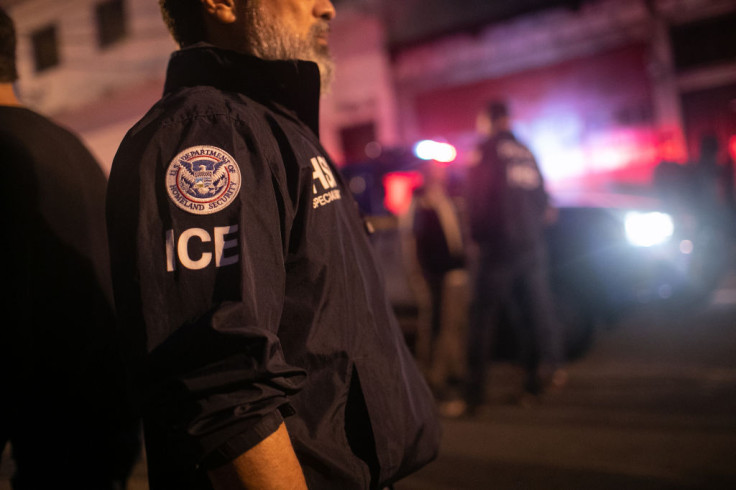
As the Trump administration continues its crackdown on illegal immigration, a new report shows the federal government has provided U.S. Immigration and Customs Enforcement with millions of dollars to spend on television advertisements aimed at recruiting local officers to assist in mass deportation efforts.
According to the Associated Press, ICE is spending heavily in select metropolitan areas, particularly in so-called sanctuary cities such as Chicago, Seattle and Atlanta, and more recently, cities and states that limit their cooperation with ICE.
The ads, which encourage applicants to join ICE, promote the agency's mission to arrest "the worst of the worst," according to a review on the ad-tracking service AdImpact, as reported by the Associated Press.
"You took an oath to protect and serve, to keep your family, your city, safe," the ad's narrator says. "But in sanctuary cities, you're ordered to stand down while dangerous illegals walk free."
The 30-second spots began airing in mid-September in several cities across the United States. In recent weeks, the campaign expanded to additional major hubs including Miami, Dallas, Houston and Salt Lake City. As of Oct. 6, AdImpact reported that total spending on the ads had surpassed $6.5 million.
The ad campaign is funded through President Trump's "Big Beautiful Bill," enacted in July. The legislation, which included widespread tax cuts and spending reductions for businesses and individuals, also allocated a substantial increase in funding for immigration enforcement, providing ICE and other federal agencies with more than $76 billion to expand their operations.
As part of the effort to boost recruitment, ICE has begun offering signing bonuses of up to $50,000 for new agents. Other incentives include tuition reimbursement and waiving age restrictions, all designed to help meet the Trump administration's stated goal of deporting one million individuals by the end of the year.
The recruitment push has raised concerns among local law enforcement agencies in cities where the ads are airing. Some police departments fear losing potential recruits to ICE due to the large financial incentives being offered.
Danny Diaz, president of the San Antonio Police Officers Association, told the Associated Press he worries that candidates who might otherwise join the city's police force will opt to work for ICE instead.
"We can't compete with a $50,000 signing bonus," Diaz said. "I do think that the younger generation will jump on that."
In Philadelphia, Police Capt. John Walker said that while it is too early to tell if the campaign is impacting recruitment, the ads are already having a psychological effect on residents.
"It's the psychological feel. You want to know that there are cops out there because it makes you feel good," Walker said. "That's all this is, strengthening the belief that they're doing something."
DHS Ad Campaign Also Aired in Mexico
This is not the only campaign launched by the Trump administration aimed at reducing illegal immigration and increasing deportations.
Earlier this year, The Latin Times reported on a nearly $200 million ad campaign by the U.S. Department of Homeland Security. The ads featured DHS Secretary Kristi Noem urging undocumented immigrants to self-deport to avoid fines and imprisonment.
The campaign included images of migrants crossing the U.S.–Mexico border, drug seizures and police mugshots of men from various racial backgrounds. The ads aired during prime-time soccer matches on major Mexican television networks such as TV Azteca and Televisa.
Although official figures on U.S. payments to Mexican broadcasters were not released, Animal Político reported that an advertising slot during Televisa's broadcast of the Club América vs. Mazatlán match could cost between $12,000 and $117,000, based on the network's 2025 rate card.
The campaign sparked criticism from several Mexican officials, including President Claudia Sheinbaum, who called on networks to remove the ads. She labeled the campaign "a discriminatory message" aimed at migrants.
"If a city in a country wants to promote its tourism or culture, that's very different from a paid advertisement that spreads discriminatory messages," Sheinbaum said.
© 2025 Latin Times. All rights reserved. Do not reproduce without permission.







